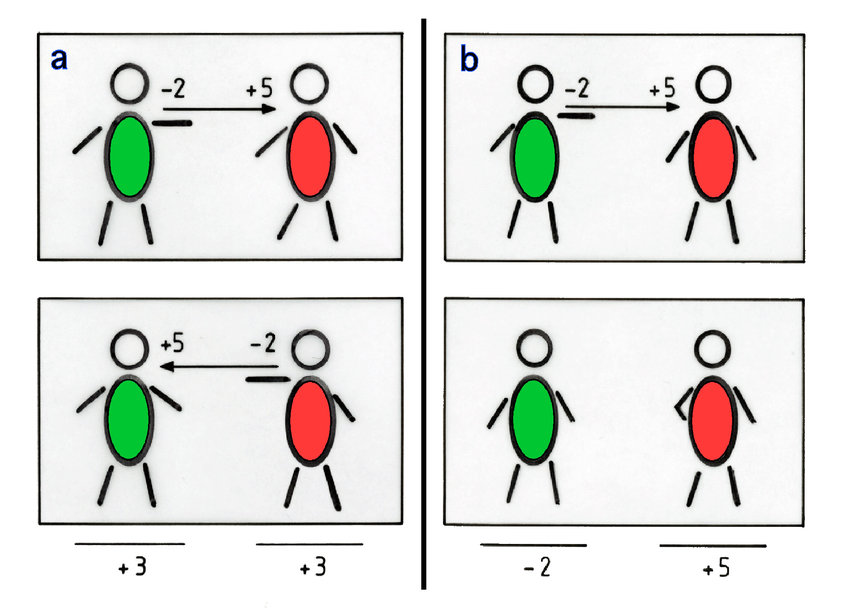1) Many of our problems are problems of cooperation. We would all profit, if everybody cooperates; but I profit much more, if I refuse to cooperate (Picture). Such a problem of, e.g., rescuing the global climate, can be studied with the methods of Experimental Economy staged as a game with students to see whether and how they maximise their gain. Will a group reach a fixed target sum through individual contributions over 10 rounds, when they know they will lose all their remaining money with a certain probability, if they fail to reach the target sum to avert “dangerous climate change”? They earned not invested money, if the target was met and simulated climate change averted. Most groups failed and lost their money. Using variants of this experiment we have studied whether humans are willing to invest for the next generation, whether delegates at climate conferences go only for the profit of their own country or whether they aim at rescuing the global climate and whether climate migrants want to / are allowed to move to a rich country.
2) Sexual reproduction pays off only, if, through mate choice, the needed immune genes are collected to achieve resistance of the offspring against new pathogens every generation anew. Therefore, we, sticklebacks and probably all vertebrates find through smell the partner that fits optimally to our immune genes. We signal with our body odour and with our chosen perfume which immune genes we possess. Our natural perfume can now be synthesized.


